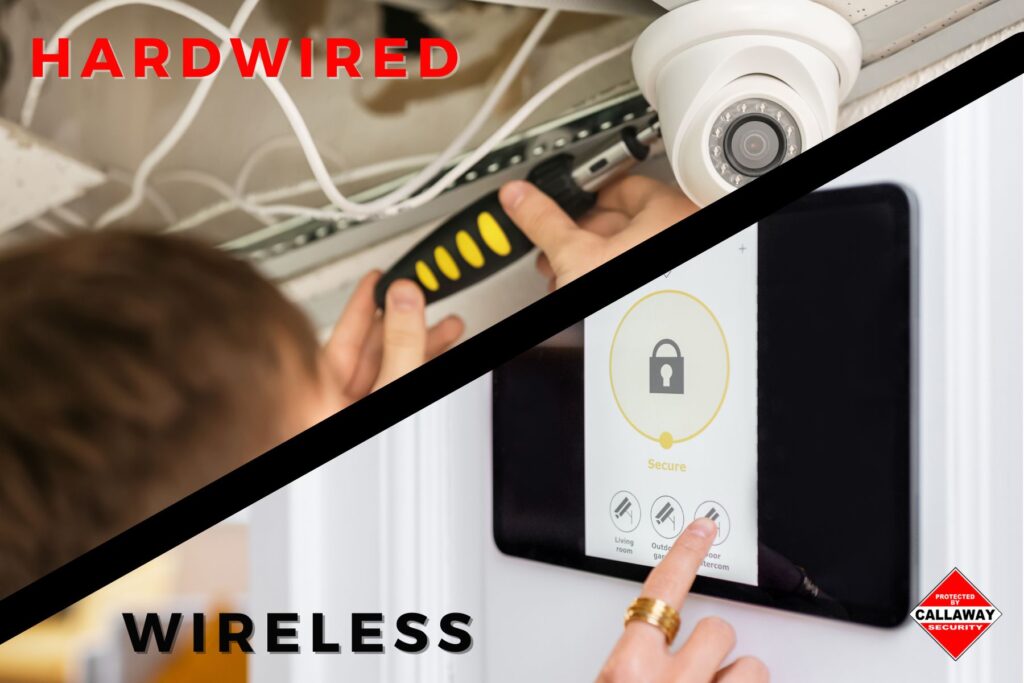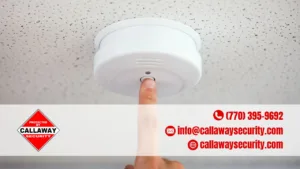The choice between wired and wireless security cameras depends on your security needs, property layout, and installation preferences. Wired cameras offer more reliability and consistent video quality, while wireless cameras provide flexibility and easier installation. Each type has its pros and cons, making it essential to consider factors like security, power supply, and internet reliability before deciding.
Security cameras are a crucial part of any home or business surveillance system. With technology evolving, the debate between wired and wireless security cameras has become more relevant than ever. Homeowners and business owners alike face a common question: should they invest in a wired system for stability or opt for wireless cameras for convenience? Understanding the strengths and weaknesses of each type will help you make an informed decision.
Key Takeaways:
- Wired security cameras provide stable connections, better video quality, and enhanced security.
- Wireless security cameras offer easier installation, flexibility, and remote access.
- Power source matters – wired cameras rely on continuous power, while wireless ones may need battery replacements.
- Interference and hacking risks – wireless cameras are more prone to signal interference and cyber threats.
- Installation complexity – wired systems require professional setup, whereas wireless options are often DIY-friendly.
- Hybrid security systems combine the benefits of both wired and wireless cameras for enhanced security.

Understanding Wired Security Cameras
Wired security cameras connect directly to a power source and a recording device, such as a digital video recorder (DVR) or network video recorder (NVR), via cables. These systems are widely used in commercial settings and permanent installations due to their reliability.
Advantages of Wired Security Cameras
- Stable Connection: No risk of Wi-Fi interference or signal dropouts.
- Higher Video Quality: Delivers uncompressed, high-resolution footage.
- Continuous Power Supply: No battery changes or charging needed.
- Stronger Security: Hardwired connections are less vulnerable to hacking.
- Long-Term Investment: Ideal for permanent surveillance setups.
Disadvantages of Wired Security Cameras
- Complex Installation: Requires drilling, wiring, and professional setup.
- Limited Flexibility: Cameras cannot be easily repositioned.
- Power Dependency: Susceptible to power outages unless supported by backup power.
- Visible Cables: Can be tampered with if not well-hidden.
Understanding Wireless Security Cameras
Wireless security cameras transmit video footage via Wi-Fi or radio signals to a connected device or cloud storage. They are widely used in homes and rental properties due to their ease of installation.
Advantages of Wireless Security Cameras
- Easy Installation: No need for extensive wiring.
- Flexibility: Can be relocated or adjusted as needed.
- Remote Access: View live feeds from anywhere via mobile apps.
- Battery & Solar Options: Some models function without external power.
- Great for Renters: No permanent installation required.
Disadvantages of Wireless Security Cameras
- Signal Interference: Walls, weather, and other electronics may cause disruptions.
- Lower Video Quality: Compression reduces image clarity.
- Security Risks: Wi-Fi-enabled devices are vulnerable to hacking.
- Battery Maintenance: Requires regular charging or replacement.
- Limited Range: Distance from the router affects performance.
Choosing the Right Security Camera System
Selecting between wired and wireless security cameras depends on your specific requirements. Below are scenarios that help determine which option suits your needs best.
Wired Cameras Are Best For:
- High-Security Needs: Businesses, banks, and government facilities.
- Permanent Installations: Homes with structured cabling.
- Large Properties: Better suited for multi-camera setups over long distances.
- High-Quality Surveillance: Requires 24/7 recording with sharp footage.
- Secure Data Storage: Directly connected to DVR/NVR systems.
Wireless Cameras Are Best For:
- DIY Installations: Homeowners who prefer a simple setup.
- Renters: Easily movable without damaging property.
- Remote Monitoring: Ideal for frequent travelers.
- Areas with Limited Wiring Access: Apartments, outdoor sheds, or temporary setups.
- Battery-Operated Surveillance: Works even during power outages.
Hybrid Security Camera Systems: The Best of Both Worlds
A hybrid security system uses both wired and wireless cameras to balance stability and flexibility. Here’s why a mixed approach might be the ideal solution:
- Wired cameras can cover main entrances, garages, and perimeters for uninterrupted recording.
- Wireless cameras can monitor indoor spaces, temporary setups, or hard-to-wire locations.
- Cloud and Local Storage can be used simultaneously to prevent data loss.
- Smart Integrations allow remote access while keeping critical areas hardwired for security.
Additional Facts About Security Camera Systems
- Weatherproofing Matters: Outdoor cameras should have IP66 or higher ratings.
- Storage Options: Local DVR/NVR vs. cloud-based storage – choose based on security needs.
- Field of View (FOV): Consider lens angles (90° to 180°) for maximum coverage.
- Night Vision: Infrared (IR) and color night vision improve low-light surveillance.
- AI and Motion Detection: Smart alerts reduce false alarms.
FAQs: People Also Ask
1. Are wired cameras better for home security?
Yes, wired cameras provide a stable connection, high-quality video, and enhanced security, making them a great choice for long-term home surveillance.
2. Can wireless security cameras work without the internet?
Some wireless cameras can record locally to SD cards or NVRs, but remote access and cloud storage require an internet connection.
3. Do wired cameras need Wi-Fi?
No, wired cameras do not rely on Wi-Fi; they transmit footage via cables to DVR/NVR storage devices.
4. What is the biggest downside of wireless security cameras?
Wireless cameras are prone to signal interference, hacking, and require frequent battery maintenance.
5. Can I mix wired and wireless security cameras?
Yes, hybrid systems allow you to combine both types, maximizing security and flexibility.
Making the Right Choice for Your Security
Choosing between wired and wireless security cameras boils down to your specific needs. Wired cameras offer unbeatable reliability and quality, while wireless cameras provide ease of installation and adaptability. For the best security coverage, consider a hybrid approach that leverages both technologies. No matter which option you choose, ensuring proper installation and maintenance will keep your property secure and your surveillance system effective.
Your safety is our priority! Whether you need wired or wireless security cameras, we’ve got the perfect solution to keep your home or business secure. With reliable monitoring, expert installation, and advanced security technology, Callaway Security™ ensures 24/7 protection and peace of mind.
🚨 Secure your property today! Contact us now to get started.












